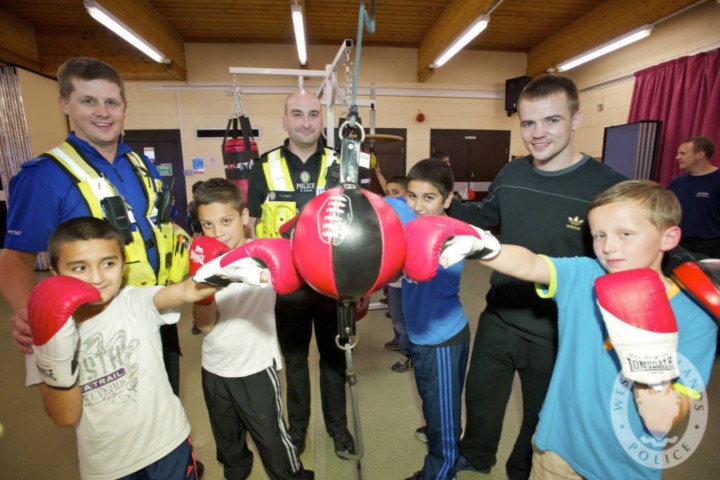Students who took part in the Salt Lake City School District’s new iCHAMPS program were sent to the office less and behaved better than students who did not participate.


Students who took part in the Salt Lake City School District’s new iCHAMPS program were sent to the office less and behaved better than students who did not participate.
The three month youth development program – an acronym for Improving Community Health & Model Police Services – is a joint effort between the district and the Salt Lake City Police Department to connect students with police officers during physical education classes to build mutual understanding, KUTV reports.
From January to May, officers met with about 570 students in 13 schools, where they “taught the students life skills, and reinforced positive behaviors, such as anger management, empathy, and teamwork, during active play with the students,” according to the television station.
Police and district officials said they’re encouraged by the results so far, and extended the program to another 210 Salt Lake City students during summer school.
“I wanted to create a program that puts police officers in direct contact with children in a positive and fun way that allows for mutual understanding,” iCHAMPS Director Moises Prospero said. “Students and officers learn to humanize each other and build more trusting relationships.”
Salt Lake City Police Chief Mike Brown said officers are getting as much out of the experience as students are.
“Our officers love to work with the community, and being given this opportunity to work directly with the youth has offered these officers an even greater sense of purpose,” he said.
KUTV reports:
An outside evaluator for the University of Utah found that the iCHAMPS program improved positive perceptions of police officers and taught children skills to resist drug use.
The preliminary results were found by comparing classrooms in the same school participating in iCHAMPS with those which did not participate. Several P.E. teachers cited fewer officer referrals and conduct problems during the duration of the program, the news release said.
Researchers at the Institute for Advanced Studies in Culture at the University of Virginia examined character education in a variety of different schools and outlined their findings in “The Content of Their Character.”
Editors James Davison Hunter and Ryan S. Olson wrote:
When social institutions – whether the family, peer relationships, youth organizations, the internet, religious congregations, entertainment, or popular culture – cluster together, they form a larger ecosystem of powerful cultural influences. None of these is morally neutral. Indeed, all social institutions rest upon distinctive ideals, beliefs, obligations, prohibitions, and commitments – many implicit and some explicit – and these are rooted, and reinforced by, well-established social practices. Taken together, these forma ‘moral ecology.’
Clearly, police and school officials are working to build positive influences into the moral ecology of Salt Lake City schools through the iCHAMPS program.
The Salt Lake City nonprofit – which offers youth development, professional development training and research and evaluation – offers more information about its mission to “promote safe and healthy neighborhoods through youth development, positive community-law enforcement relations, and collaborative partnerships” on the iCHAMPS website.